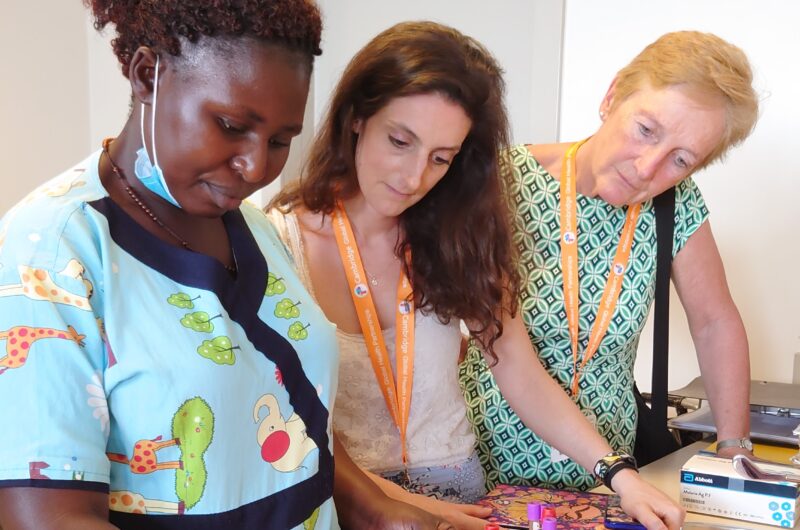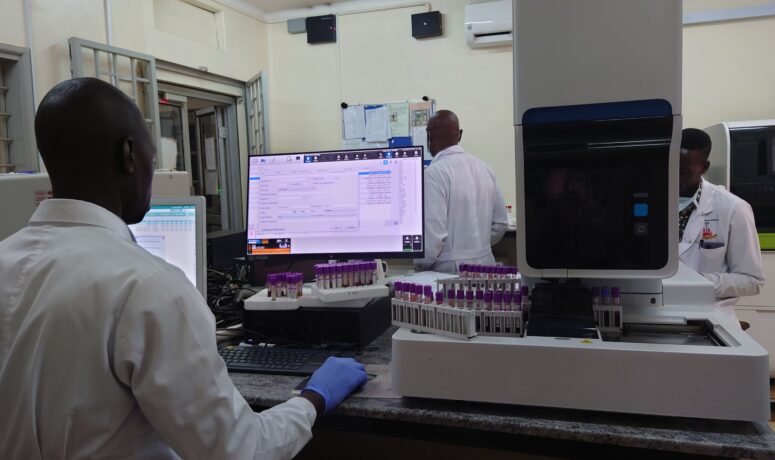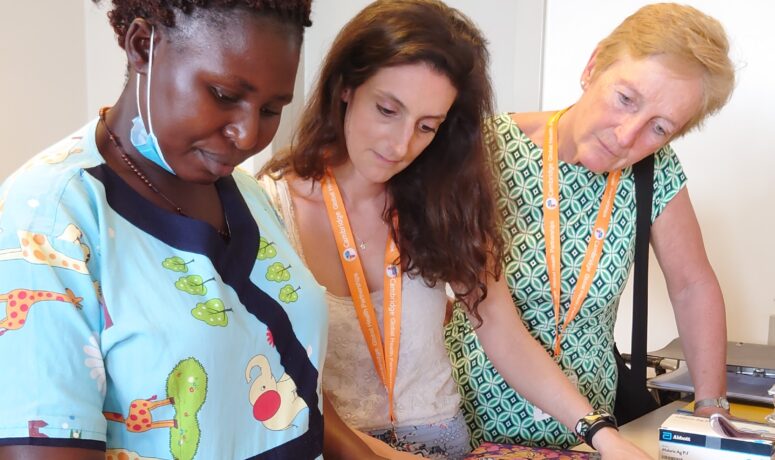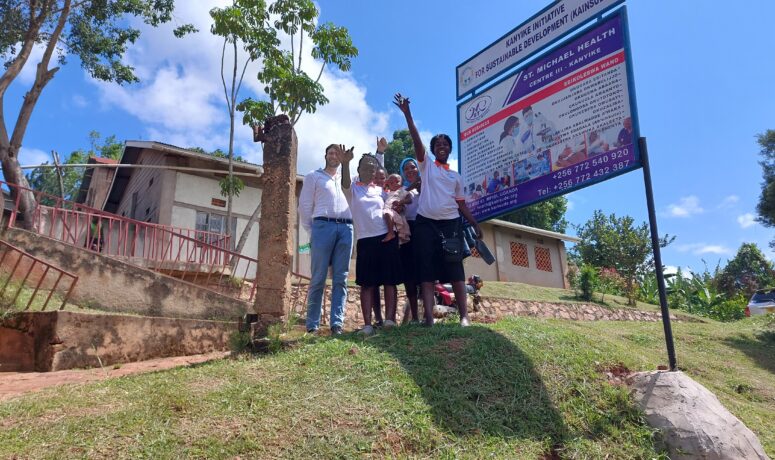The Uganda Cambridge Cancer Initiative was established in 2019 involving the Uganda Cancer Institute (UCI), Cambridge Africa, CRUK Cambridge Centre and the University of Cambridge Department of Pathology, with CGHP and Cambridge University Hospitals (CUH) leading health partnership work with UCI within the initiative. The focus is on improving care for children with cancer.
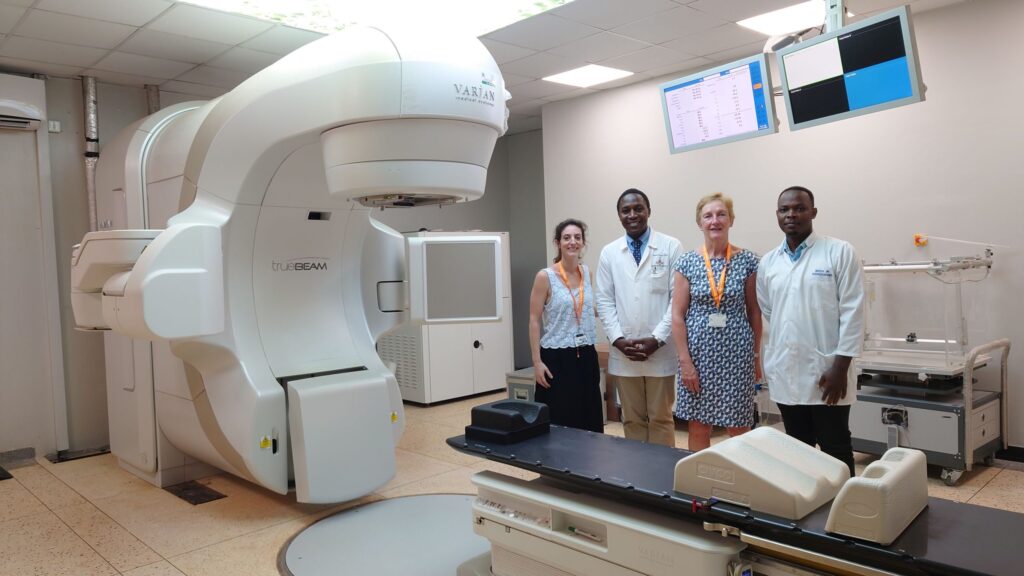
Partnership goals
Each year over 400,000 children are diagnosed with cancer worldwide (1, 2). Many childhood cancers can be effectively treated with medicines, surgery and radiotherapy. However, the likelihood of surviving depends on the country you live in.
In high-income countries, more than 80% of children diagnosed with cancer recover. However, in low and middle-income countries (LMICs), less than 30% survive. Avoidable deaths from childhood cancers in LMICs result from lack of diagnosis, misdiagnosis or delayed diagnosis, obstacles to accessing care, abandonment of treatment, death from toxicity, and relapse. (2, 3)
The Uganda Cancer Institute (UCI) is a public cancer specialist care facility in Kampala. It treats around 750 children every year from across Uganda and surrounding East African countries. The paediatric haematology and oncology department at Addenbrooke’s hospital in Cambridge serves children in the East of England using a ‘hub and spoke’ model of care in association with 10 paediatric oncology shared care units around the region.
The goal of the partnership is to improve care for children with cancer and support the World Health Organisation’s (WHO) objective of achieving at least 60% survival for all children with cancer by 2030. To meet this goal, the partnership is supporting pathology and diagnostic pathways, improving the safety of prescription and administration of chemotherapy, and strengthening aspects of patient education, care and support.
Find out why partnership co-lead Dr Denise Williams got involved.
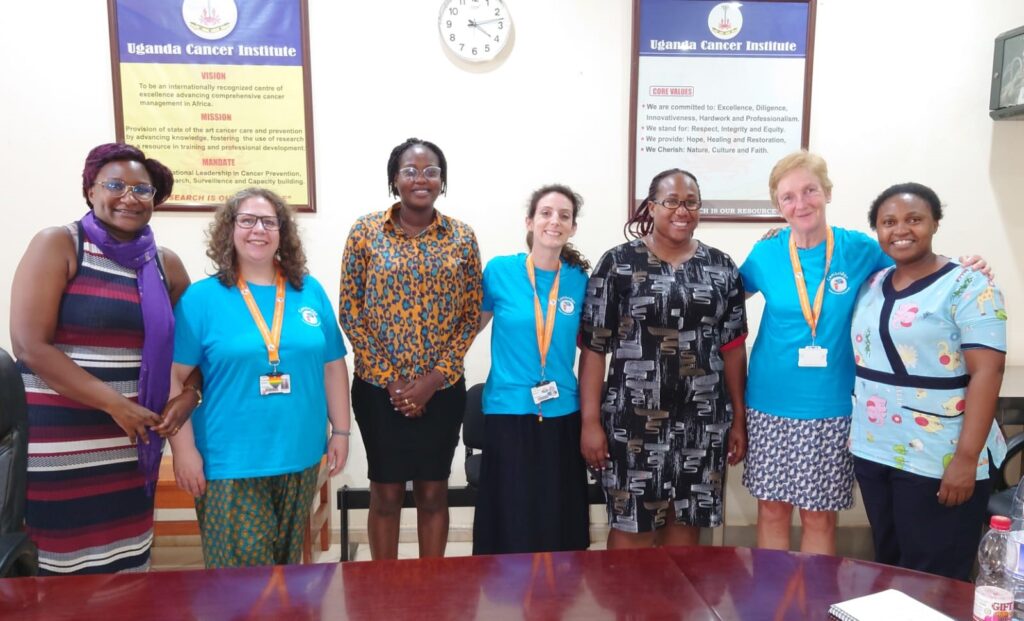
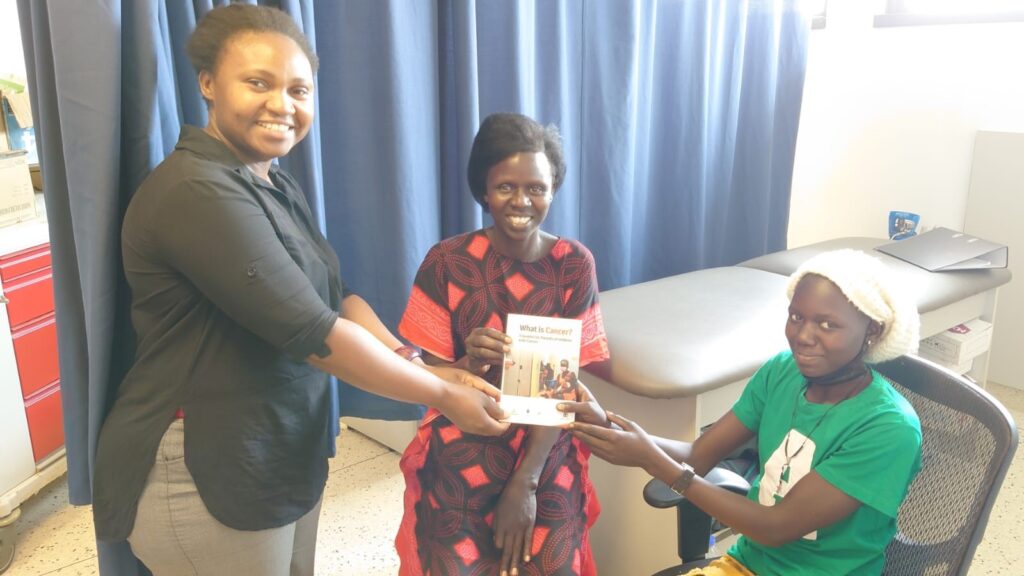
How it works
The partnership is hybrid, compromising remote meetings and learning sessions as well as in person visits to Uganda and to the UK. It involves a multidisciplinary team of pharmacists, nurses, paediatric oncologists, haematologists and pathologists working together to develop new processes, skills and knowledge to address the issues specifically affecting patient outcomes and survival rates in Uganda and informing and improving care for sick children in both Kampala and Cambridge.
Through reciprocal training, mentorship and support the partnership is focusing on four key areas:
- Chemotherapy protocols
This is about improving the safe prescription and administration of chemotherapy, for example by ensuring early treatment is given to the sickest children. Protocols also ensure that emergency treatment is time limited so that each child receives the correct treatment as soon as the diagnosis is finalised, and that chemotherapy, fluids and supportive medicine is given in the right way. Four chemotherapy protocols have already been developed that provide specific processes to follow. The aim is to develop individual protocols for the seven most treatable and curable tumours as well, to ensure a consistent approach to treatment for all children. - Faster diagnosis
Speeding up the diagnostic process is vital to allow children to start on the correct treatment plan as soon as possible. An important part of this is developing relationships between CUH and UCI diagnostic services, in particular between pathologists, to share learning and provide mentorship and guidance. - Educational resources
The partnership identified a lack of understanding about childhood cancer diagnoses and treatment by patients and their families as a reason for high rates of treatment abandonment at UCI. In 2023 Cambridge University medical elective students working with the UCI team developed the first in the series of parent information leaflets providing explanations and guidance on childhood cancer diagnoses and treatment. A second booklet focusing on different treatments for cancer and what to expect from treatment is planned, with the goal to translate it into multiple languages spoken on the unit. - Strengthening nursing care
Nurses in Kampala and Cambridge are working together to develop standard operating procedures (SOPs) at UCI to help build nursing practice and promote consistency, for example in areas such as infection prevention and control and blood transfusion.
Support the Paediatric Cancer Project
“I hope that we can continue to build on our friendships, based on honesty and mutual respect. In turn, ensuring we get the best from each other by recognising our strengths and weaknesses, and using them to achieve our goal, irrespective of cadre. And most importantly I would like to think that we can work together in the partnership to really makes a difference to the lives of children with cancer.”
Dr Denise Williams, co-lead of the Paediatric Cancer Health Partnership
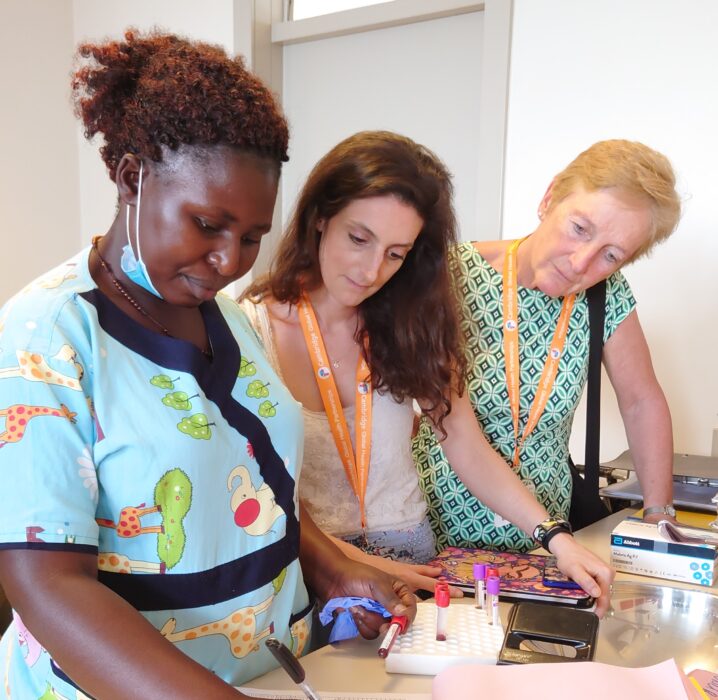
Find out what paediatric oncology pharmacist Shauna Arao from the Uganda Cancer Institute got up to when she visited Cambridge to spend time with fellow oncology and pharmacy colleagues.
Watch partnership co-lead, CUH consultant paediatric oncologist Dr Denise Williams, talk about what’s been achieved so far and the next steps.
References:
- Steliarova-Foucher E, Colombet M, Ries LAG, et al. International incidence of childhood cancer, 2001-10: a population-based registry study. Lancet Oncol. 2017;18(6):719-731.
- World Health Organization. (2021). CureAll framework: WHO global initiative for childhood cancer: increasing access, advancing quality, saving lives. World Health Organization. https://apps.who.int/iris/handle/10665/347370
- Lam CG, Howard SC, Bouffet E, Pritchard-Jones K. Science and health for all children with cancer. Science. 2019 Mar 15;363(6432):1182-1186. doi: 10.1126/science.aaw4892. PMID: 30872518.

